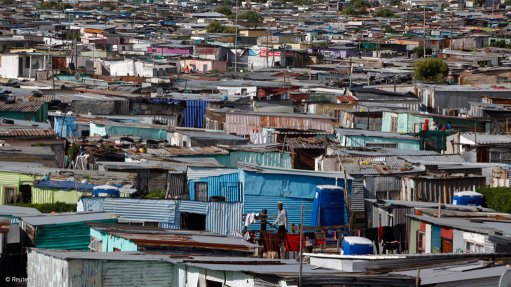
Photo by: Reuters
Seven years ago, the world set an ambitious target to reach United Nations (UN) Sustainable Development Goals (SDGs) by 2030. Halfway to that target year, however, nearly all indicators are off track.
The recently released sixth annual Goalkeepers Report by the Bill and Melinda Gates Foundation found that the world will achieve "almost none" of the goals, including eliminating poverty, hunger and gender inequality.
Despite the setback, the foundation's regional representative for Southern Africa, Matshidiso Masire, said there was hope for the future.
"We've known from the start that the SDGs are so ambitious that it has always been possible – maybe even probable – they will never materialise.
"The world set the SDGs because they saw the value in high, hard targets; in pressure testing every aspect of development work so that if progress ever started slowing or backsliding, there would be no room for complacency. We still believe in this vision today.
"The latest data shows that to meet most of the SDG targets, the world would have to make progress five times faster – and, on some goals, much more than that. But we're still optimistic. These projections cannot account for the possibility of human ingenuity – new technologies and new ways of thinking."
Masire told News24 that the Covid-19 pandemic, climate change, and the Russia-Ukraine war were some factors that had disrupted reaching the goals.
The annual Goalkeepers Report shows that these crises have set back almost every indicator of progress toward achieving the 2030 global SDGs.
"Despite these setbacks, past progress – in areas including HIV and malaria – gives us hope for the future. Challenges that seemed too big or too hard in the past were overcome. That's why we know the world can achieve the Sustainable Development Goals – the world has faced the odds before and won.
"We believe that by 2030, we'll look back at the data in this report the same way we look at data from the turn of the millennium: In amazement at how quickly and dramatically things turned around for the better," Masire said.
Extreme poverty
Since the pandemic, 100-million more people have been pushed into extreme poverty. According to the Goalkeepers Report for 2021, 23% of children under the age of five were stunted. The 2030 projection suggests that 21% of children under the age of five will be stunted.
"The economic pressures created by the pandemic have thrust people into dire straits, restricting incomes and increasing extreme poverty. Africa and the rest of the world are not on track to achieving most of the SDGs.
"By finding out what hasn't worked, learning from that and embracing new approaches, Africa can reach its development goals, where the majority of its people are living healthy, productive lives," Masire said and added that it was important to ensure that people at most risk for hunger receive food relief.
"We also need to recognise that for the last decade, many factors have been steadily eroding the foundations of the global food system. There is an equally urgent need to address these underlying problems that cause food crises. That requires investing in research to produce innovations targeting farmers in the most vulnerable regions.
Gender equality
According to the report, gender equality will only be reached in 2108 – three generations later than expected. Currently, women spend more than three times as many hours as men performing domestic and care work.
Masire said progress toward gender equality was "slow" and "has stalled".
"But we can't simply blame acute global crises like the pandemic. The world simply hasn't focused enough on gender equality.
"We know that women have an outsized impact in the development of their community, including infant mortality, disease and poverty. The data is clear: when women and girls can enjoy good health, have agency over their own lives and be leaders in their societies, everyone benefits."